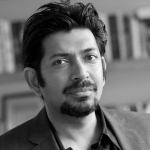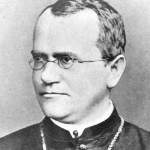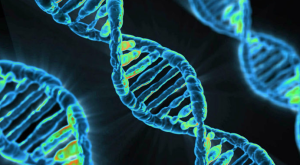Siddhartha Mukherjee's The Gene: An Intimate History
01 September 2016
 Prof. David Sowden's Autumn book review - The Gene - An Intimate History by Siddhartha Mukherjee
Prof. David Sowden's Autumn book review - The Gene - An Intimate History by Siddhartha Mukherjee
Science is about converting unknown unknowns into known unknowns and then (with any luck) known knowns.”Brian Cox has similarly recently written
The world is beautiful to look at but more beautiful to understand..."This book is an extraordinary evocation of these statements. Mukherjee tells a story that is epic and surprising in both its detail and its wider scope. It highlights the relatively paucity of knowledge development in biology and the biological sciences until Mendel and Darwin, when compared to, say, physics and chemistry. It also highlights how some of those critical developments were almost lost and only re-discovered many years later.
 Prior to Mendel and Darwin most of biology centred on a description of the natural world as it appeared at the level of the entire organism or the gross anatomy within. Thus, a focus on ordering plants and animals into families and the like, together with exercises in comparative gross anatomy. Rather than trying to understand how organisms actually came into being, lived and functioned and died. In such a context it is perhaps not too surprising that priests and proponents of religious belief predominated in much of this descriptive work; glorifying and acknowledging the work of a supernatural “creator”. Thus, biology was trapped in a phase of “natural history” preoccupied with the classification of animals and the largely qualitative descriptions of organismal anatomy and physiology. Watson referred to these biologists as the “old school” and likened them, somewhat unkindly, to stamp collectors; interestingly elements of this old school staggered through to the 1980s.
In such circumstances it is perhaps surprising, in the context of the development of the science of genetics, that the initial work on heredity was undertaken by Mendel; a seemingly, somewhat reluctant Moravian monk.
Prior to Mendel and Darwin most of biology centred on a description of the natural world as it appeared at the level of the entire organism or the gross anatomy within. Thus, a focus on ordering plants and animals into families and the like, together with exercises in comparative gross anatomy. Rather than trying to understand how organisms actually came into being, lived and functioned and died. In such a context it is perhaps not too surprising that priests and proponents of religious belief predominated in much of this descriptive work; glorifying and acknowledging the work of a supernatural “creator”. Thus, biology was trapped in a phase of “natural history” preoccupied with the classification of animals and the largely qualitative descriptions of organismal anatomy and physiology. Watson referred to these biologists as the “old school” and likened them, somewhat unkindly, to stamp collectors; interestingly elements of this old school staggered through to the 1980s.
In such circumstances it is perhaps surprising, in the context of the development of the science of genetics, that the initial work on heredity was undertaken by Mendel; a seemingly, somewhat reluctant Moravian monk.
 The book has a clear focus on the “new school” of biologists – highlighting the increasing pace of change within the field of genetics. Mukherjee tells an endlessly interesting story beginning with the mutant hunters and moving onto the field of chemical analysis of proteins, DNA and genes and their expression in the human phenotype. He touches on but does not explore in any real depth the recent developments in epigenetics (see postscript).
Mukherjee emphasises that we are now in Peter Medawar’s era of genetic technologies and genetic engineering where the potential for deliberate genetic change by the manipulation of DNA or its expression is now a reality. As Crick says “each generation needs new music” and we are certainly in a very different biological world than even 10 years ago. Scientific fiction is moving to scientific fact and technological possibility.
Mukherjee doesn’t major on the complex science of genetics (though there are some relatively complicated sections of the book) but rather focuses on their potential implications and highlights the risk of a sinister resurgence of a new type of eugenics.
He points out that the consequences of knowing how to tell people apart by virtue of their genetic composition is but a small step from seeking to part populations into tribes, where the genetic differences matches existing prejudices and, in due course, assumptions of worth. We have already passed the point of describing people apart by virtue of their genetic make up or its expression. The question is the extent to which we are prepared to act on such knowledge and potentially enter the grotesque realms of formalised gene management centred on an arbitrary concept of normality. His careful forensic critique of the manifest errors in attributing patterns of IQ to race; a meme masquerading as a gene – alone make this book worth reading.
The book has a clear focus on the “new school” of biologists – highlighting the increasing pace of change within the field of genetics. Mukherjee tells an endlessly interesting story beginning with the mutant hunters and moving onto the field of chemical analysis of proteins, DNA and genes and their expression in the human phenotype. He touches on but does not explore in any real depth the recent developments in epigenetics (see postscript).
Mukherjee emphasises that we are now in Peter Medawar’s era of genetic technologies and genetic engineering where the potential for deliberate genetic change by the manipulation of DNA or its expression is now a reality. As Crick says “each generation needs new music” and we are certainly in a very different biological world than even 10 years ago. Scientific fiction is moving to scientific fact and technological possibility.
Mukherjee doesn’t major on the complex science of genetics (though there are some relatively complicated sections of the book) but rather focuses on their potential implications and highlights the risk of a sinister resurgence of a new type of eugenics.
He points out that the consequences of knowing how to tell people apart by virtue of their genetic composition is but a small step from seeking to part populations into tribes, where the genetic differences matches existing prejudices and, in due course, assumptions of worth. We have already passed the point of describing people apart by virtue of their genetic make up or its expression. The question is the extent to which we are prepared to act on such knowledge and potentially enter the grotesque realms of formalised gene management centred on an arbitrary concept of normality. His careful forensic critique of the manifest errors in attributing patterns of IQ to race; a meme masquerading as a gene – alone make this book worth reading.
 His warning that the limits of genetic determinism are currently great is well made. Gene(s) – environment interfaces produce unreliable outcomes that are, with a few exceptions, not subject to any meaningful predictability. That may and probably will change – what will we do with that knowledge?
Here we enter the realms of potential scientific overreach (effectively doing stuff that is better not done) but also the arena of public ignorance about science and its tendency to underestimate how quickly science advances and the societal consequences thereof. Without explicitly mentioning it he highlights the fundamental dangers of government by a political class that are knowledgeable about the arts but largely scientifically illiterate or worse still redolent with “beliefs” but little or no ethical framework.
He doesn’t offer answers but he has a knack for posing questions to which answers are urgently needed and in doing so makes the reader think.
He quotes Eric Topol who said
His warning that the limits of genetic determinism are currently great is well made. Gene(s) – environment interfaces produce unreliable outcomes that are, with a few exceptions, not subject to any meaningful predictability. That may and probably will change – what will we do with that knowledge?
Here we enter the realms of potential scientific overreach (effectively doing stuff that is better not done) but also the arena of public ignorance about science and its tendency to underestimate how quickly science advances and the societal consequences thereof. Without explicitly mentioning it he highlights the fundamental dangers of government by a political class that are knowledgeable about the arts but largely scientifically illiterate or worse still redolent with “beliefs” but little or no ethical framework.
He doesn’t offer answers but he has a knack for posing questions to which answers are urgently needed and in doing so makes the reader think.
He quotes Eric Topol who said
The more technologies evolve, the more we enter unknown territory. There is no doubt we have to face incredibly tough choices.”To which I would add – but do most people even have a rudimentary understanding of the choices we will have to make in the near future, let alone the wisdom to see their longer-term implications for humankind? In an increasingly fractured world this seems as big an issue as the increasing “tribalism” of belief, climate change, population growth and patterns of accelerated extinction. What we do next may well determine the whole future of mankind and at a truly fundamental level, that of the genome and its expression – big stuff !! As the science has moved on the field of genetics and genetic science has erupted with surprises. It would rather too easy to focus this review on the long list of protagonists that saw biology move to the forefront of human scientific endeavour – however, that would distract from the fact this is a really, really good read; though one that becomes more challenging as the book progresses. At times it reads almost like a detective novel, revealing developments in elegant prose and with an enviable turn of phrase. The author wears his learning very lightly and consequently, increasingly complex issues are presented in an easily accessible form; though that doesn’t mean that everything presented is easy to understand. It is a shame that his editors weren’t a bit more careful as there are errors and unnecessary repeats but that shouldn’t dissuade anyone from reading the book. This really is a book for everyone, and I think everyone should read it. I suspect the only clinicians who wouldn’t see much value in reading it would be those whose career is focused on clinical genetics; though even they may see value in the questions that the author poses about the future direction of genetic study and technology. Postscript: for a more detailed analysis of epigenetics read: The Epigenetics revolution by Nessa Carey, Icon Books. ISBN : 978-184831-347-7 See more of Siddhartha Mukherjee - TED TALK HERE The Gene – An intimate history by Siddhartha Mukherjee. ISBN : 978-1476733500 Prof. David Sowden MBChB, FRCGP, FRCOG, FFSEM, FAoME, DCH. Now retired. Formerly : Dean of Post-Graduate Medical Education East Midlands (2000 – 2012) Director of Medical Education England (2008/09 and 2012)
